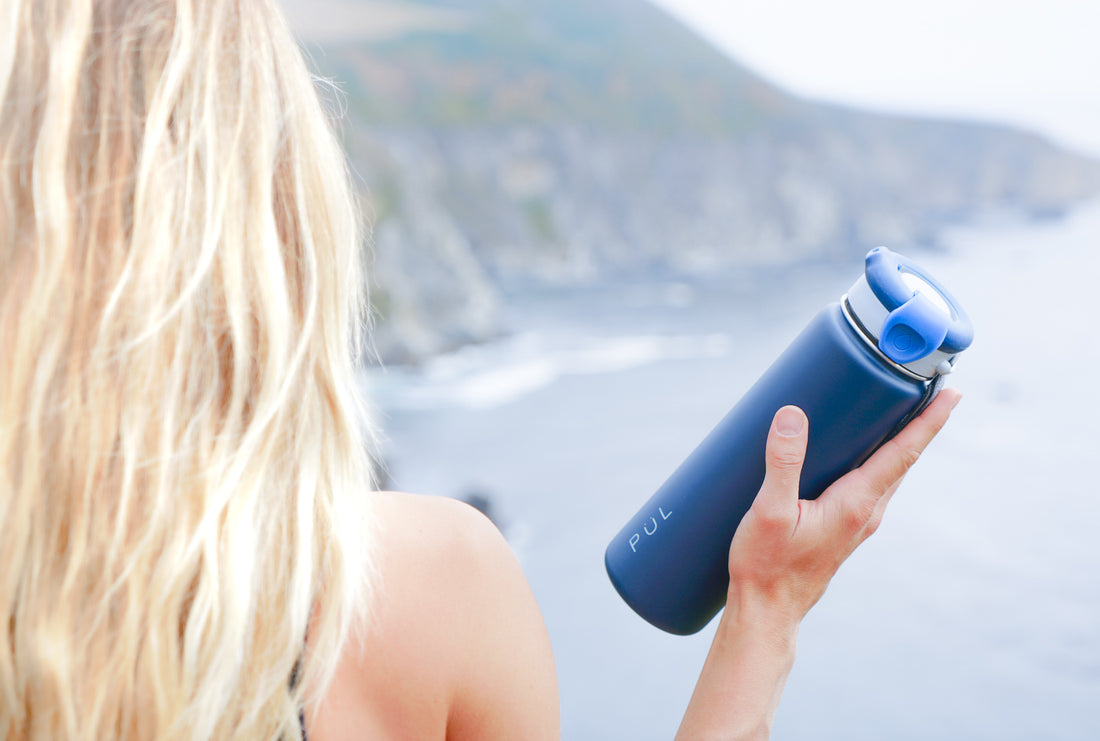If you want to jumpstart your hydration game this year and stay healthy, consider checking your serum sodium levels. That's because sodium levels in the body significantly affect aging, disease risk, and even how hydrated you are. This blog post will explore how blood sodium levels and hydration impact your health.

Is your Serum Sodium Level Above or Below 42?
Serum sodium levels in the body measure the amount of sodium and water in the bloodstream, indicating how hydrated you are. You may be susceptible to adverse health outcomes when you are not adequately hydrated and serum sodium levels exceed normal values of 135 to 146 milliequivalents per liter of blood (mEQ/L).
A recent study from the National Institute of Health with over 15,000 participants showed that those with a serum sodium level of 142 and up were at a 39 percent greater risk of developing chronic diseases like stroke, peripheral artery disease, chronic lung disease, diabetes, and dementia.
Elderly individuals are especially at risk of developing hypernatremia as they age due to the reduced ability to sense thirst.
High serum sodium concentrations are also associated with an increased risk of developing high blood pressure and congestive heart failure.
Hydration and Aging
Serum sodium levels are also linked to how well you age.
In the previously mentioned 2023 study, besides chronic disease, participants with high blood sodium levels were 10%-15% more likely to be biologically older than their chronological age.
Chronological age measures your lived years, but your biological aging is determined by several factors, including how healthy and fit you are.
Lifestyle choices like eating well, exercising regularly, and staying adequately hydrated are significant factors in determining your biological age!
Staying Hydrated
Staying mindful of your water intake and cultivating healthy eating habits can help you maintain optimal blood sodium levels for a healthier lifestyle.
Unfortunately, a startling number of American adults are chronically underhydrated, by as much as 75 percent!
So how much water should you get each day?
Your optimal water intake depends on gender, health, and physical activity. You will need more water if you're active, workout regularly, or are an athlete.
If you work outdoors in hot weather or live in a warm climate, you may need more water than someone who doesn't.
Replenishing lost electrolytes is especially after working out. But Kaustubh Dabhadkar, Cardiologist at Novant Health, advises against over-the-counter electrolyte products with added sugar. This may be hard to do if you're not actively reading package labeling, as even so-called healthy electrolyte drinks have about two or more teaspoons of sugar per serving.
The U.S. National Academies of Sciences, Engineering, and Medicine suggests a daily fluid intake of:
Approximately 3.7 liters a day for men
Approximately 2.7 liters a day for women
It’s important to note that your total fluid intake isn’t just limited to water. According to Dr. Dabhadkar, consuming plenty of fruits and veggies is part of maintaining good hydration. However, solid food usually contributes to around only 20% of total daily water intake.
As we age, our risks of dehydration and hypernatremia can increase - but it doesn't have to be that way! One interesting fact is that adequate water intake facilitates sodium excretion via urination.
Hydrating properly helps improve mental agility, digestion, and sleep quality – all essential for a healthy lifestyle.
To ensure you're keeping up with optimal blood sodium levels, you can actively monitor water intake diligently or invest in a Pul Smart Cap and experience personalized guidance.
Our PÜL SmartCap — an innovative, mobile-connected device — revolutionizes how you can measure fluid consumption. This cutting-edge technology uses real-time tracking and AI to provide rich insight into how to improve personal hydration.
Plus, it conveniently fits most existing water bottles and integrates directly with your iOS or Android device.
It's time to start hydrating immediately, so stay informed no matter what life throws you!
Empower yourself today with PÜL's revolutionary hydration system!
Resources:
Dmitrieva, Natalia I. et al., Middle-age high normal serum sodium as a risk factor for accelerated biological aging, chronic diseases, and premature mortality, The Lancet, 02 January 2023, https://doi.org/10.1016/j.ebiom.2022.104404
Hypernatremia, National Library of Medicine, Retrieved on 15 January 2023. https://www.ncbi.nlm.nih.gov/books/NBK441960
Gordon B. How much water do you need? Academy of Nutrition and Dietetics. https://www.nationalacademies.org/our-work/dietary-reference-intakes-for-electrolytes-and-water. Accessed 15 January 2023.
The Nutrition Source. Harvard T.H. Chan School of Public Health. Sports Drinks. Accessed on 15 January 2023
Interview with Kaustubh Dabhadkar, MD MPH MBA FACC, Cardiologist at Novant Health. January 2023. {LinkedIn Profile: https://www.linkedin.com/in/kaustubh-dabhadkar/}


